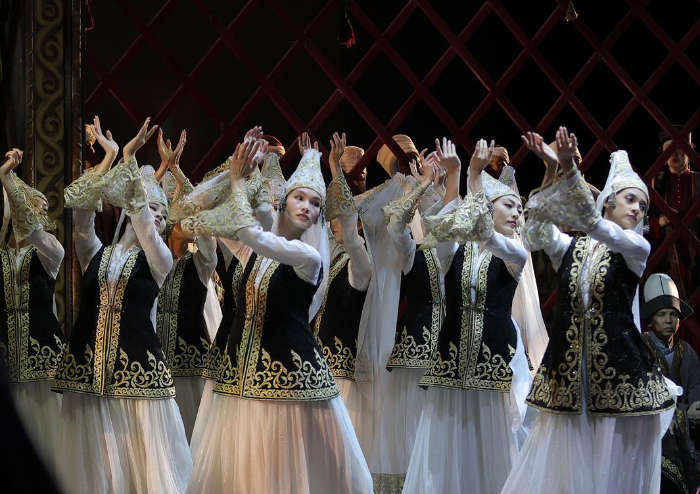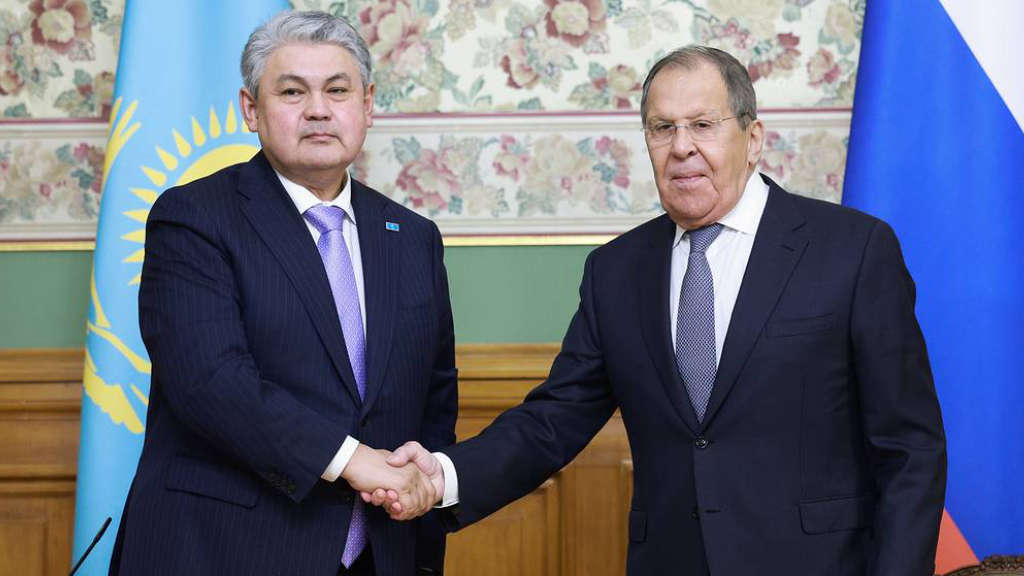The Russian Foreign Minister, Sergey Lavrov, has been holding meetings with the new Kazakh Foreign Minister, Ermek Kosherbaev, in Moscow. A key part of the discussions related to Russian commitments to Kazakhstan concerning construction of the first nuclear power plant in Kazakhstan, with Lavrov saying, “Russia is among the leading trade partners of Kazakhstan, the largest investor in the Kazakh economy. Much attention is paid to assisting in provision of energy security through joint thermal and hydropower projects We welcomed the decision made in June by Kazakhstan to choose Rosatom as the leader of the international consortium for the construction of the first nuclear power plant in the country. The relevant authorities are working now on technical and financial parameters, as well as on legal details.”
Space

Lavrov also commented on Russia-Kazakh space cooperation, saying, “2025 also marks the 70th anniversary of the legendary Baikonur Cosmodrome. The Russian-Kazakhstani Baiterek project, which contributes to the development of Kazakhstan’s national space programme has entered its final phase. Our plans include joint launches of the advanced Soyuz-5 launch vehicle.”
Baiterek is a joint project of Kazakhstan and Russia, started in 2004. The goal is to create an organizational and technical structure for launching the launch vehicle and its possible modifications with a high level of environmental safety from the Baikonur cosmodrome. The design capacity of the Baiterek space rocket complex is six to eight launches annually. The first launch from the Baiterek complex is scheduled for December 2025.
Education

In other bilateral aspects, Lavrov and Kosherbaev discussed the creation of a network of branches of Russian universities in Kazakhstan and a reciprocal process. For example, in September, a branch of Al-Farabi Kazakh National University opened its doors to students in Omsk. Work is underway to establish joint schools in Kazakhstan and Russia.
Culture

In bilateral cultural exchanges, the Days of Culture of Kazakhstan exhibition began in Moscow on October 10, with the new building of the Tretyakov Gallery is hosting the Masterpieces of Kazakh Art exhibition; Kazakh films are being screened in cinemas, while the Kuanyshbayev Kazakh National Music and Drama Theatre, including the Astana Ballet, have been performing on Russian stages. The celebrations will culminate in a gala concert of Kazakh performing artists on the Historic Stage of the Bolshoi Theatre.
Additional Discussions

Lavrov summarized the rest of the discussions by saying, “We had a detailed exchange of views on pressing regional and international issues. We noted the consonance and alignment of our approaches to addressing key problems of the modern world. We share a positive assessment of cooperation within multilateral organisation such as the EAEU, the CSTO, the CIS, the SCO, and the United Nations. We particularly emphasized the fact that our alliance, primarily within the CSTO framework, is an important factor in maintaining stability in Central Asia and ensuring security across the Eurasian continent as a whole.
In this context, we focused on implementing the initiatives advanced by President Vladimir Putin to form a Greater Eurasian Partnership and an architecture of equal and indivisible security in Eurasia. We also discussed how existing integration associations and initiatives, including Kazakhstan’s initiative to strengthen the Conference on Interaction and Confidence-Building Measures in Asia (CICA), fit into these processes.
We noted the continuing—and even growing—importance of joint work in the Caspian region. We agreed that the five Caspian states possess unique expertise in addressing issues concerning the Caspian Sea and bear responsibility for sustainable development, peace, and security in the region as enshrined in the Convention on the Legal Status of the Caspian Sea. We are positive about Iran’s proposal to hold the 7th Caspian Summit in Tehran on August 12, 2026, which is also marked as Caspian Day.
We also discussed various international issues, including the situation in the Middle East and other hotspots. We informed our Kazakhstani friends about the latest developments in and around Ukraine. We appreciate our Kazakhstani friends’ understanding of our principled position, primarily the fact that sustainable settlement is impossible without addressing the core causes of this conflict.
Overall, we are satisfied with the outcome of the talks and agreed to continue the constructive and trust-based dialogue.”
The discussions also assisted with planning the Kazakh President Kassym-Jomart Tokayev’s state visit to Russia, scheduled for November 12. Tokayev recently met Russian President Putin in Dushanbe earlier this month.
Further Reading
Russia, Kazakhstan and China Discuss Unmanned Digital Transport Corridor

 Русский
Русский













